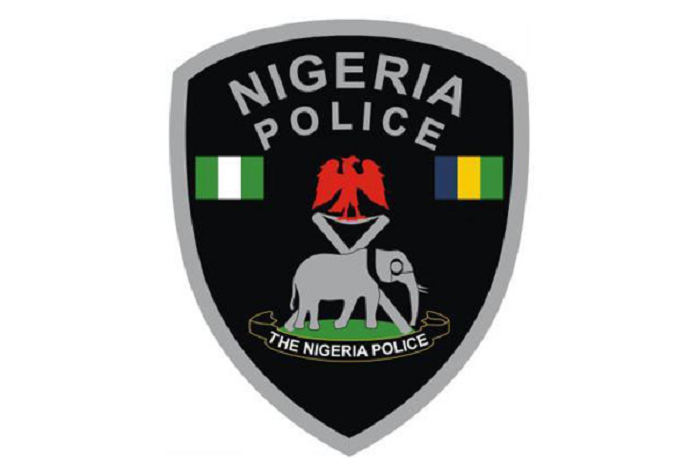The highest-ranked officer in the Nigerian Police Force (NPF) is the Inspector General of Police. The occupant of that position is charged with running the day-to-day activities of the police. The appointment of the Inspector General of Police is made by the president of the country, on the advice of the Public Council. It follows that he cannot be removed from office except by the president on the direction of the Police Council. The person appointed as the Inspector General must be a senior police officer with the required qualifications. He shall not be lower than the rank of Assistant Inspector General and shall hold office for a period of four years, which can be renewed.
Duties and Responsibilities of the Inspector General of Police (IGP)
An Inspector General of Police is an adviser to the government on all matters related to the administration of the Police Force. He is responsible for the training of the members of the Police, making sure they carry out their duties and maintain law and order. Most of his efforts are geared towards keeping the Police Force efficient in the discharge of its duties.
Other duties of the IGP include the following:
- He is empowered to make rules and orders under the Police Act. The IGP has the right to issue important and radical rules and orders with the government’s approval.
- The IGP is the central authority that directs operations necessitated by riots, strikes, industrial disputes, political movements, and disorders. He gives orders to the police on necessary actions to be taken to control these disturbances. In case of serious law and order problems, he may use the services of the reserve police to restore peace in such areas.
- He is aware of the security situation of the country and its citizens
- Organization of the police force into various groups for high performance and effectiveness.
- Training and re-training of police officers and staff. Establishment of a training center where police officers and staff will be trained.
- He makes sure that police personnel is healthy, both mentally and physically.
- Seeing that the welfare of the police personnel is catered for.
List of All The IGPs Nigeria Has Had Since Independence
1. Louis Edet (1964-1966)
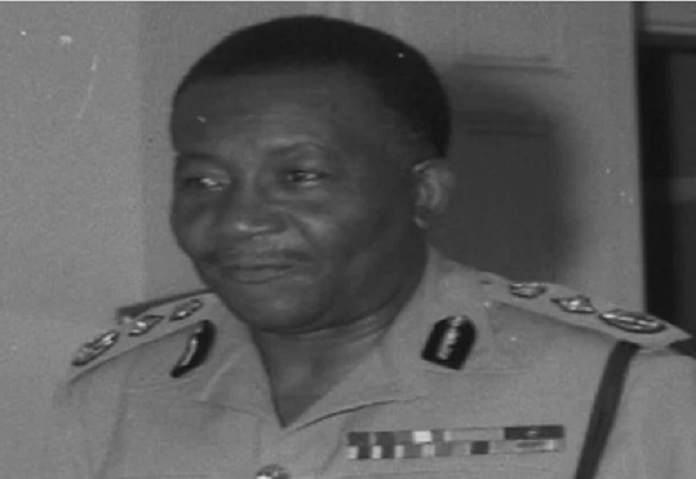
Louis Edet is the first indigenous inspector general of the Nigerian Police. He was born in 1918, the year of the amalgamation of the northern and southern protectorates of Nigeria. He served as Inspector General from 1964 to 1966. He headed the Police Force during the young phase of its republic. The Nigeria Police Force Headquarters in Abuja was named after Louis Edet and is called Louis Edet House.
2. Kam Salem (1966-1975)
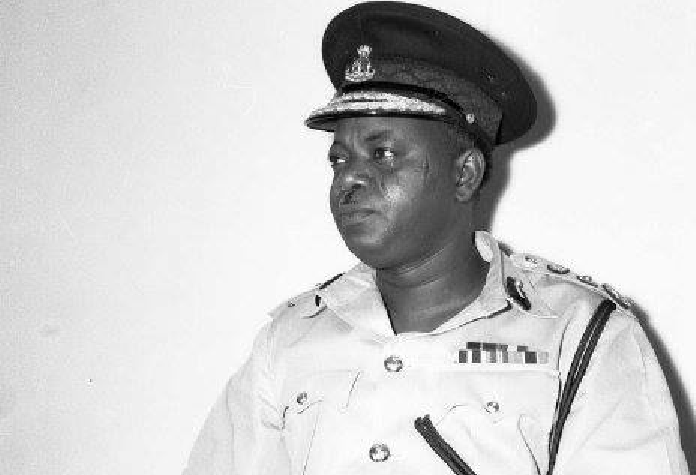
Besides taking over from the pioneer in 1966, Salem also headed the police force at a tough phase during the Nigerian Civil War. He was the IGP from 1966 to 1975, during General Yakubu Gowon’s military regime. His reign passed through the war, which took place between 1966 and 1970. He continued until five years after the war before he retired.
3. Muhammadu Dikko Yusufu (1975-1979)
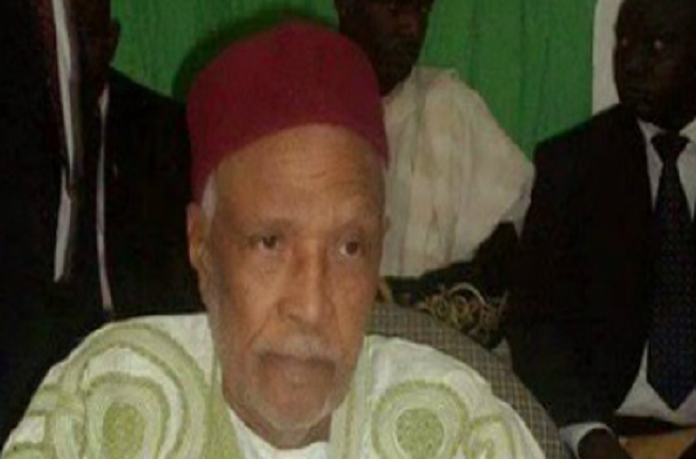
Mohammadu Dikko Yusufu succeeded Salem in 1979. He was also known as MD Yusuf, and he took the police force through a reconstruction phase in the country. His tenure cut across the military regimes of General Murtala Mohammed and General Olusegun Obasanjo from 1975-1979.
After his services in the police force, Dikko entered into politics and ran for the post of president in 2003. Before his political dreams, he was the Chairman of the Nigerian Liquefied Natural Gas in 1994. Also, he was once the Chairman of the Arewa Consultative Forum in 2000.
4. Adamu Suleiman (1979-1981)
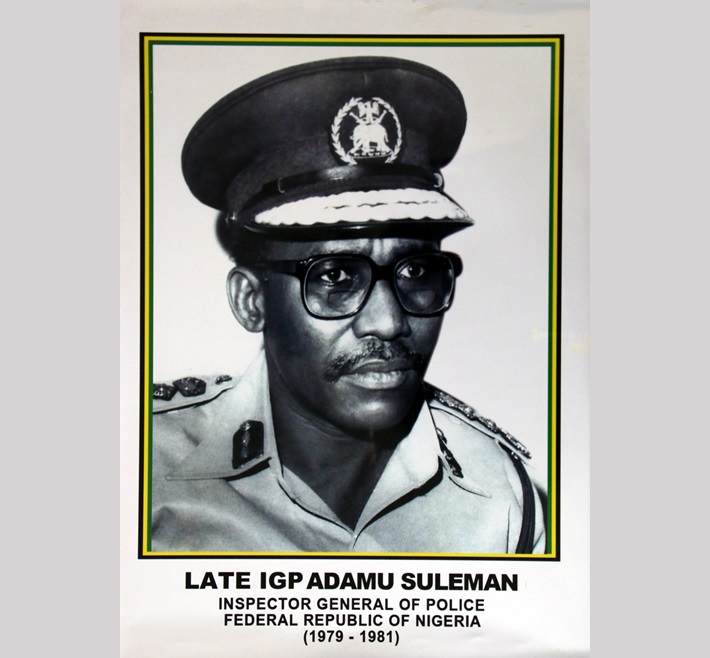
Alhaji Adamu Suleiman was seconded into the police force as a deputy commissioner of police on 1st May 1966. He was an Inspector General of Police during the second republic under President Shehu Shagari’s rule. He retired from the Nigerian Police Force in 1981.
5. Sunday Adewusi (1981-1983)
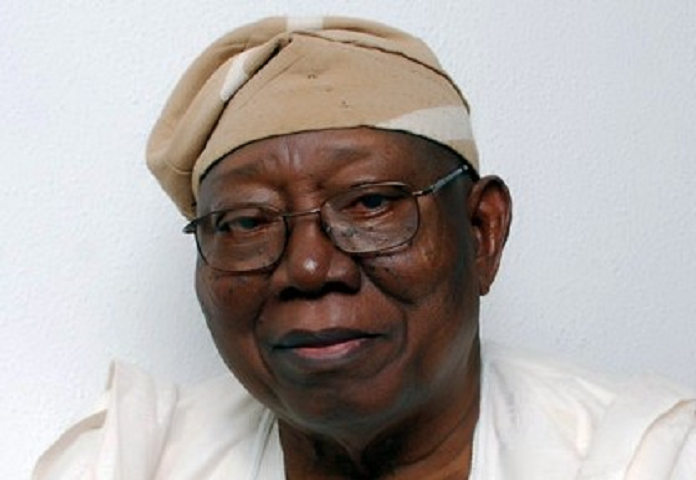
Sunday Adedayo Adewusi served as the IGP from 1981 to 1983. Born in 1948 at Ogbomoso, he became the commissioner of police at the age of 32, and at 45, was appointed as the Inspector General. He died in 2016 at the age of 79.
6. Etim Inyang (1985-1986)
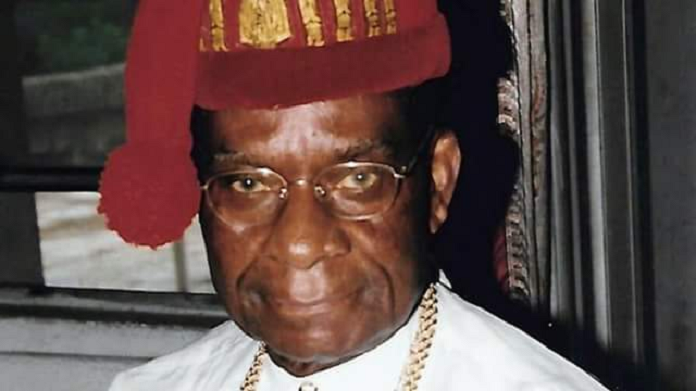
Etim Inyang ascended the office of the IGP during the reign of the Nigerian military president, Ibrahim Badamosi Babangida. During his reign, there was a high rate of armed robbery in the country. It was also during his time that Lawrence Anini, the Benin-based armed robbery gang leader, terrorized the police force and the citizens with his gang. Before he was relieved of his appointment, Etim set up a plan to apprehend Lawrence Anini.
7. Muhammadu Gambo Jimetta (1986-1990)
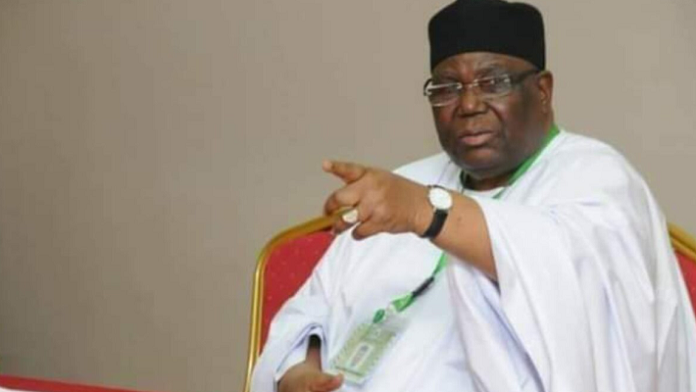
Muhammadu Gambo Jimeta served as Inspector General from 1986 to 1990. It was during the reign of Gambo as the IGP that Lawrence Anini and his gang were arrested. Before his appointment, while he was still the Commissioner of Police in Lagos State, Gambo brought down the rate of robbery in the state.
8. Aliyu Attah (1990-1993)
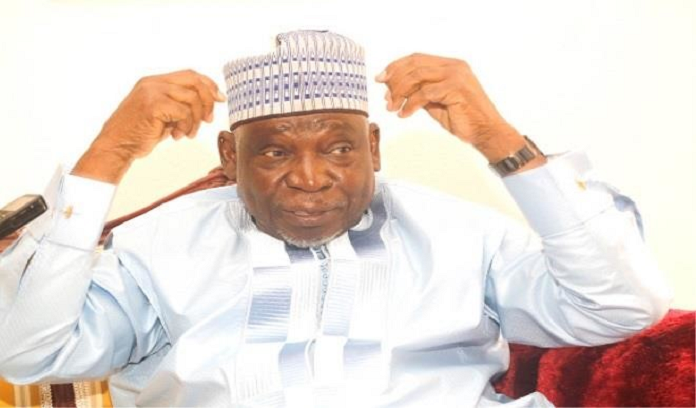
Aliyu Attah succeeded Muhammadu Gambo Jimetta in 1990 before handing it over to Ibrahim Coomassie in 1993.
9. Ibrahim Coomassie (1993-1999)
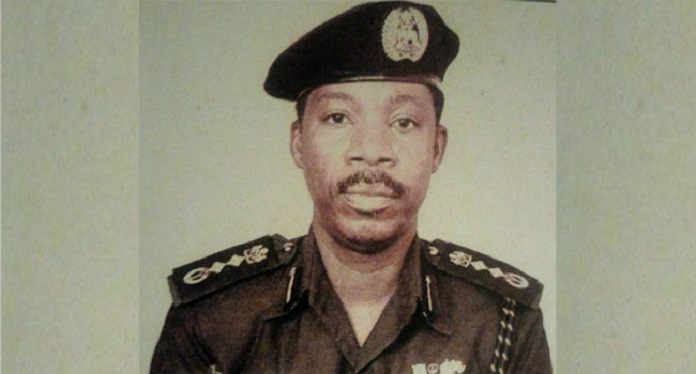
Ibrahim Coomassie took over from Aliyu Attah. His tenure was filled with state-sponsored detention and murders. During his reign, the president-elect, Chief Moshood Kashimawo Olawale (MKO) Abiola, was arrested without a warrant. He was maltreated and held in prison for four years before his death in 1998. Also, Kudirat Abiola, wife of M.K.O. Abiola, and Chief Alfred Rewane were murdered while he was in charge of the police.
10. Musiliu Smith (1999-2002)
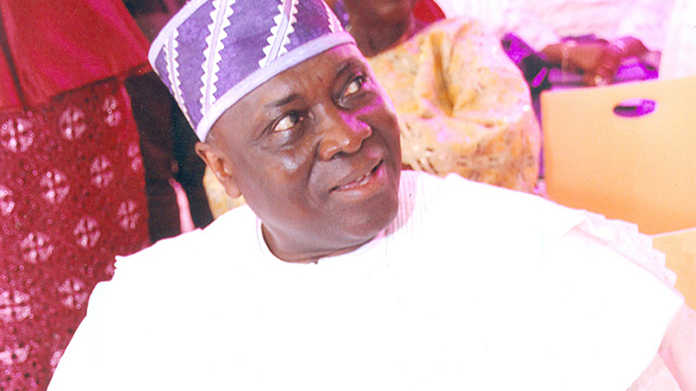
Musiliu Smith took over from Ibrahim Coomassie in 1999. During his tenure, there was a revolt in the rank and file of the police force. As a result, he was forced to retire in 2002 by President Olusegun Obasanjo. After his retirement, he became the chairman of Skye Bank’s board of directors in 2006, and in 2007, he headed the Lagos State Security Council. In 2018, Smith was sworn in by President Muhammadu Buhari to be the Chairman of the Police Service Commission.
11. Mustafa Adebayo Balogun (2002-2005)
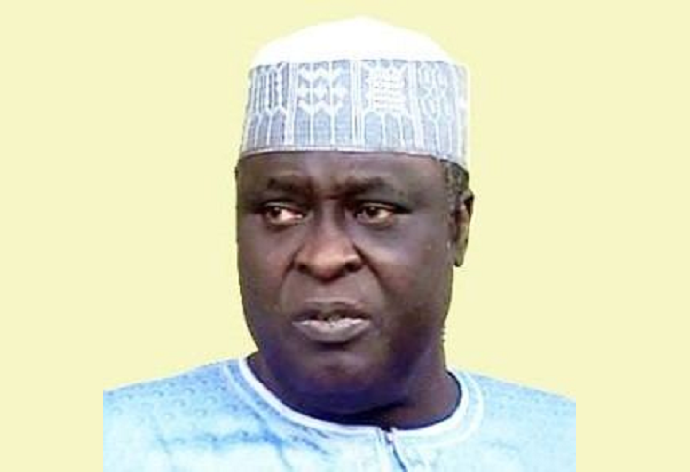
Mustafa Adebayo Balogun, popularly known as Tafa Balogun or Kumawu, became the Inspector General in 2002. Like his predecessor, he was forced to retire in January 2005 because of the corruption charges against him. He was in charge of the April 2003 general elections, which reported many cases bordering on police abuse. Also, it was during his reign that there were a lot of reports on press brutality. The height of corruption was enormous under his rule. After his forceful retirement, he was arrested and charged for money laundering, fraud, and other crimes, by the EFCC.
12. Sunday Ehindero (2005-2007)
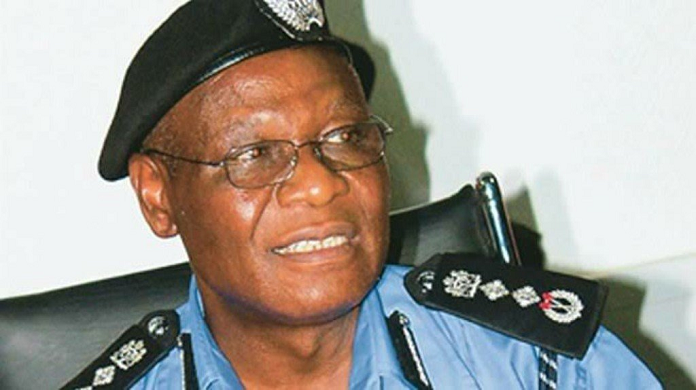
Following the forceful retirement of Tafa Balogun in 2005, Sunday Gabriel Ehindero from Ondo State was appointed to replace him. He was faced with the task of redeeming the image of the Nigerian Police Force after it was dragged to the mud by the former IGP. While he was still a Deputy Inspector General (administration), he led an investigation that discovered human skulls and bodies in Okija Shrine, Anambra State, Nigeria.
Being a Lawyer, Sunday saw to tit that Police Lawyers are allowed to prosecute criminal cases in Nigerian courts. He also fought for the removal of gender bias from the police act. However, Ehindero was arrested and charged by the EFCC for money laundering.
13. Mike Mbama Okiro (2007-2009)
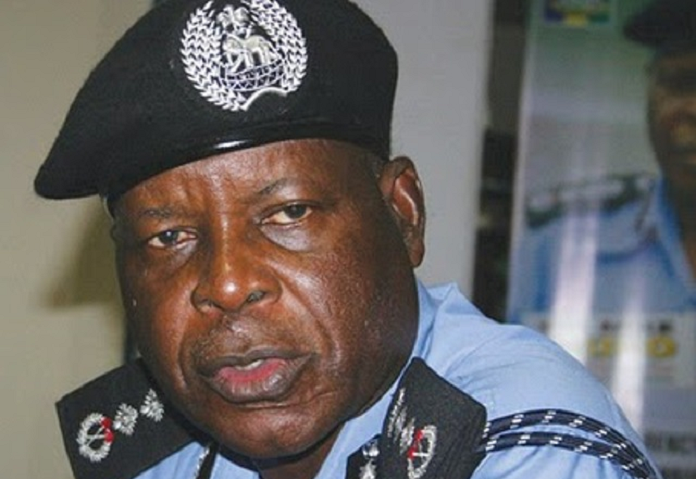
Mike Mbama Okiro was appointed by the late President Umaru Musa Yar’adua on 29th May 2007. Before his appointment, he served as Assistant and Deputy Commissioner of Police (operations) in Lagos and Benue States. He received a double promotion from the Commissioner of Police to Deputy Inspector General and served as a DPO to police commands in several states in Nigeria.
After he was appointed as the IGP, he reinstated some police officers who were forced into retirement. He carried out investigations into the Halliburton Scandal and charged a subsidiary of Halliburton, KBR, for bribing Nigerian politicians to gain construction contracts from NLNG. Even though he was accused by the EFCC for the missing 16 billion Naira recovered from Tafa Balogun, he was later cleared of the charges. He served his tenure well and received praises for his achievements. He retired in 2009, at the age of 60, following the Nigerian retirement age.
14. Ogbonna Okechukwu Onovo (2009-2010)
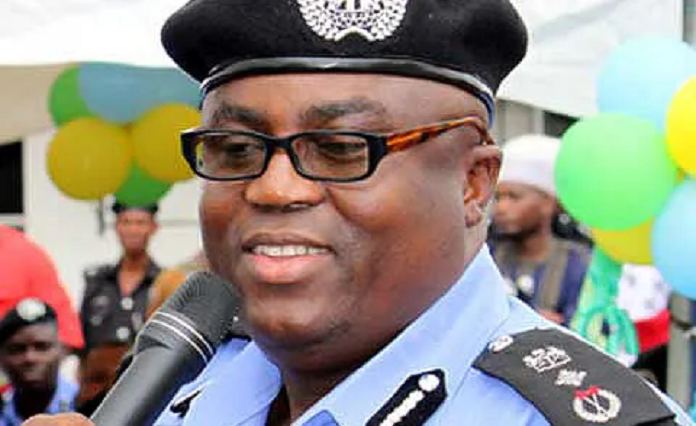
Born in his hometown, Enugu State, Nigeria, Ogbonna Okechukwu attended the prestigious University of Nigeria, Nsukka, and graduated with a degree in Political Science. He joined the police force in 1977. Before his appointment, he served as Acting Inspector General and Deputy Inspector General in the Nigerian Police Force, before assuming the post of IG in 2009.
Onovo’s reign saw to the arrest of the Boko Haram leader, Mohammed Yusuf, even though some policemen lost their lives in the process. He compensated the families of the dead policemen with some cheques. However, his tenure saw the rise of kidnapping. His inability to handle the kidnapping cases led to his untimely retirement in 2010.
15. Hafiz Ringim (2010-2012)
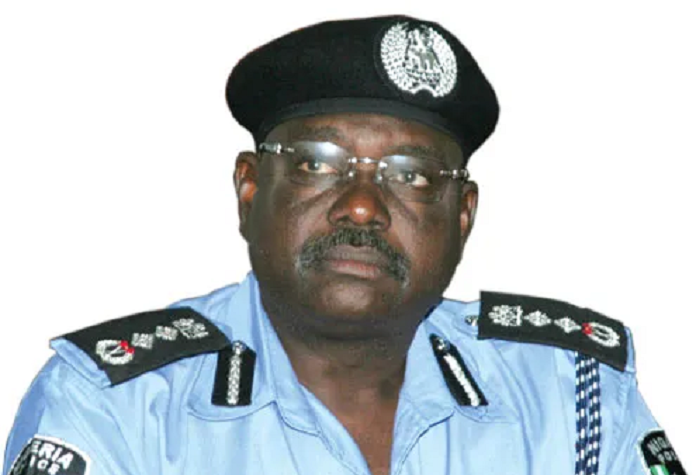
Hafiz Ringim entered the police force as a cadet inspector on 1st March 1977. He became the IGP after Ogbonna Okechukwu Onovo. His tenure was worse than his predecessor. It witnessed many bombings, including the 2011 bombing at St Theresa’s Catholic Church, Madalla, on Christmas day, with over 40 people dead, and the Kano bombing that claimed the lives of more than 185 people. Hafiz Ringm retired on 25th January 2012.
16. Mohammed Dikko Abubakar (2012-2014)
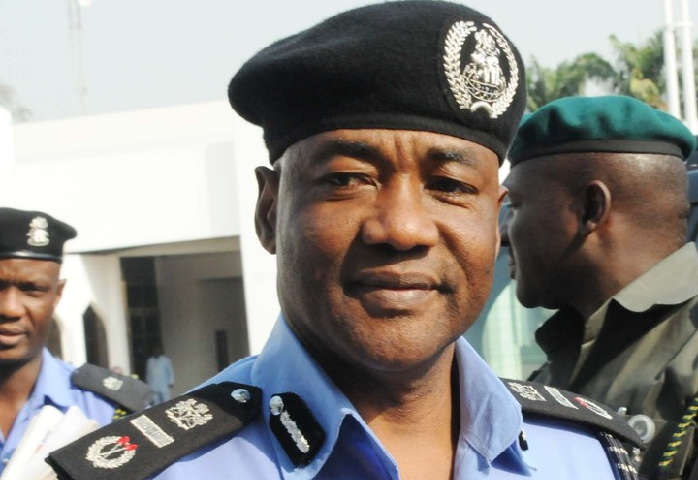
Like his predecessor, Mohammed Dikko Abubakar entered the police force as a cadet inspector in 1979. Before he was appointed the IGP, he had served as Assistant Commissioner of Police, Federal Operations, Assistant Commissioner of Police, State Criminal Investigations Department, Assistant Inspector General of Police, Zone 12, Bauchi State. He also served as the Deputy Commissioner of Police in Lagos State. He identified the problems of the Force as corruption, no tactics, and inadequate training, among others, but he did not take a positive step to solve the problems.
He was appointed the Inspector General in 2012. It was under his reign as the chief that the camouflage uniform was introduced. He retired and handed power over to Suleiman Abba.
17. Suleiman Abba (2014-2015)
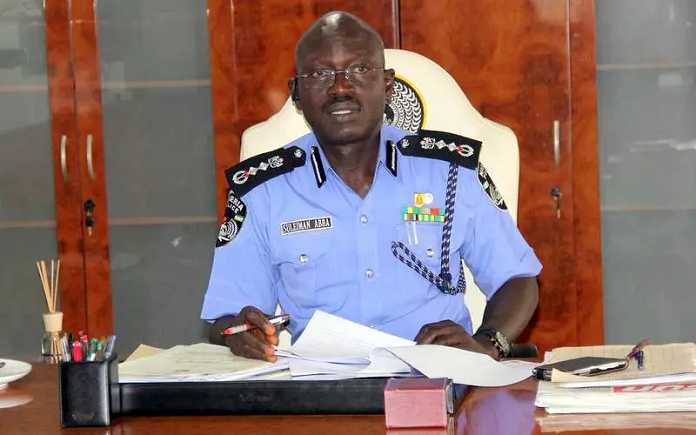
Suleiman Abba was appointed the IGP on 1st August 2014 by President Goodluck Jonathan. Before his appointment, he was the Assistant Inspector General, Zone 7, Abuja. Also, he served as a Commissioner of Police in Lagos and Rivers State. He was named a substantive IGP on 4th November 2014. However, on 27th April 2015, Abba was sacked by the president because of the uprising indiscipline in the police force following the 2015 General Elections.
18. Solomon Ehigiator Arase (2015-2016)
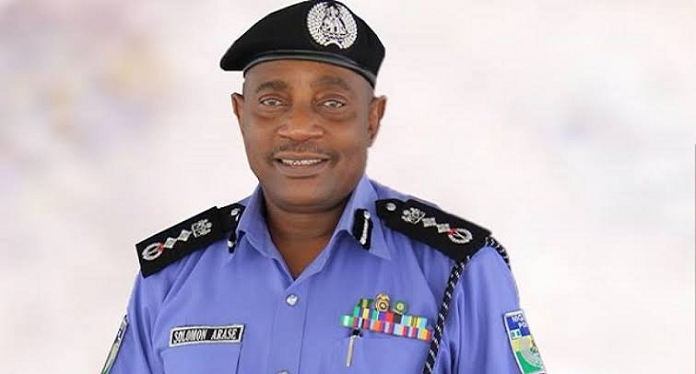
The 18th indigenous Inspector General of Police, Solomon Arase, was appointed in 2015 following the dismissal of his predecessor, Suleiman Abba. Before his appointment, Solomon served as a Commissioner of Police in Akwa Ibom State, the head of the Force Criminal Intelligence and Investigation Department, and the Deputy Inspector General. The fellow of the Nigerian Defence Academy retired from the police force on 21st June 2016.
19. Ibrahim Kpotun Idris (2016-2019)
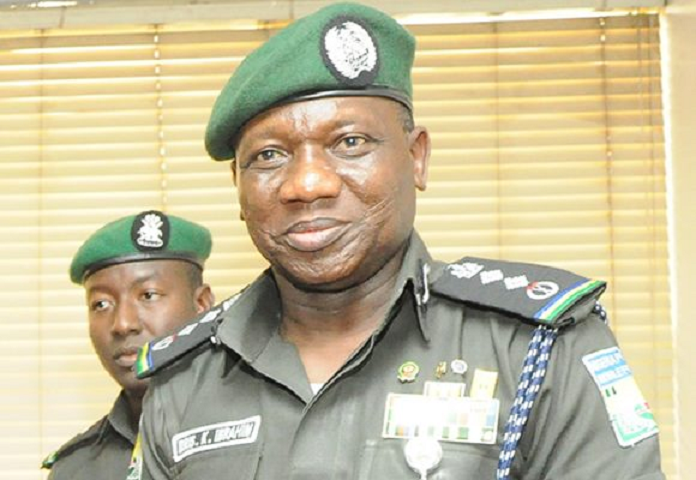
Ibrahim Kpotun Idris was appointed by President Muhammadu Buhari on 21st March 2016. Before his appointment, Idris served as Assistant Inspector General (operations), Federal Headquarters, Abuja. As a commissioner of Police, he led the Kano State and Nasarawa State Police Commands and led the Police Mobile Force. Ibrahim is the first IGP to deploy a female officer in commanding units at the state level. He is also the first IGP to have publicly declared his assets in Nigeria. As a result, he was commended by the Code of Conduct Bureau. He retired in January 2019.
20. Mohammed Abubakar Adamu (2019-2021)
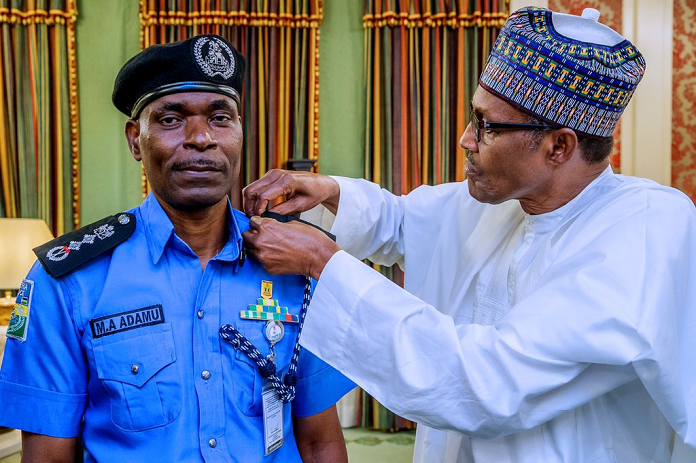
On 15th January 2019, President Muhammadu Buhari appointed Mohammed Abubakar Adamu as the Acting Inspector General. His appointment was confirmed on the 29th of May 2019. Before his appointment, he served as Assistant Inspector General, Benin City. He was also in charge of the overall management and operations in the Zone 5 of the Nigerian Police Force. From 2013 to 2015, Adamu served as the Deputy Commissioner of Police in the Enugu State Command. He retired in February 2021 and was replaced with Usman Alkali Baba on 6th April 2021.
21. Usman Alkali Baba (2021 to date)
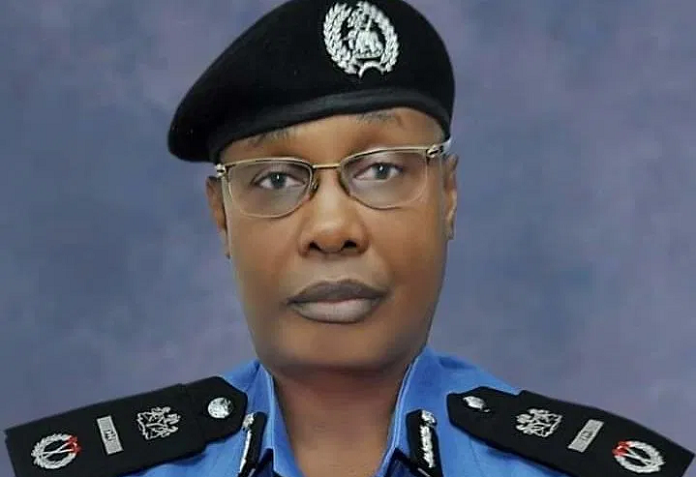
Usman Alkali Baba is the 21st and current Inspector General of the Nigerian Police Force. He was appointed by President Muhammadu Buhari on 6th April 2021. His appointment was confirmed by the Police Council on 4th June 2021. Before his appointment, he served as Delta State Commissioner of Police, Deputy Inspector General Force CID, Deputy Commissioner, Federal Capital Territory. He also served as Divisional Police Officer (DPO) in Yola, Gombe, and Jos. Usman Baba is a member of the International Association of Police and a Fellow of the International War College.
